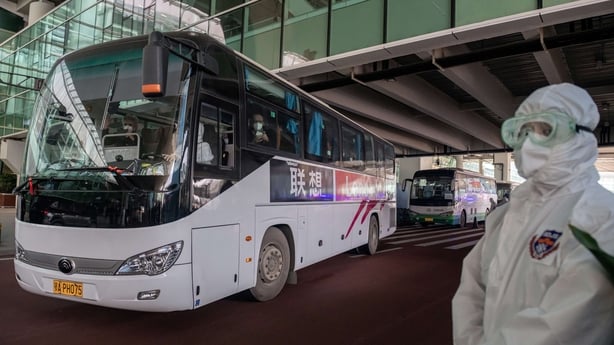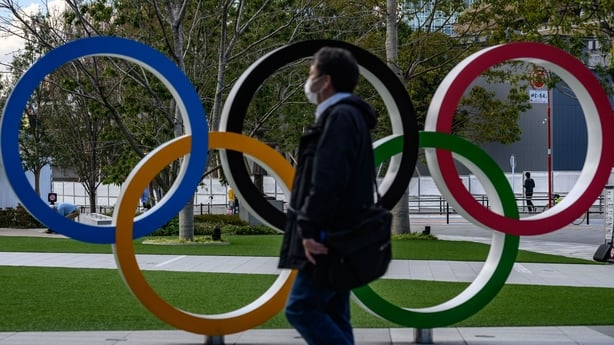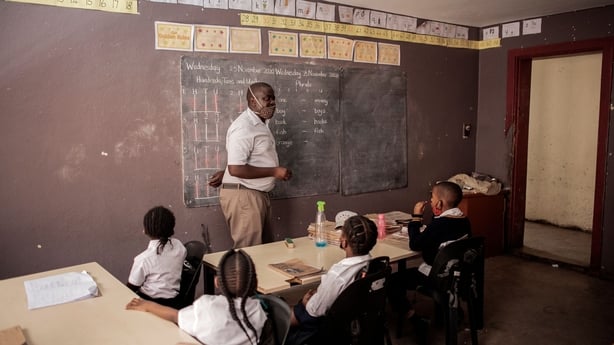More than 30 million coronavirus cases have been officially recorded in Europe, according to an AFP tally based on official health statistics.
The 52 nations, which include Russia, constitute the world’s worst affected zone in terms of the number of infections, followed by the United States and Canada at 23,994,507 cases, Latin America and the Caribbean at 16,989,628 and Asia at 14,485,588.
Europe on 17 December became the first global region to pass half a million deaths.
Germany passed two million coronavirus cases today as a World Health Organization emergency committee readied to issue advice on stemming the spread of new, more contagious strains of the disease.
The surge in Europe’s biggest economy came as countries on the continent again tightened restrictions, with Portugal entering a fresh lockdown and Britain requiring negative tests for entry.
Despite the roll-out of vaccines – India’s mammoth programme will begin tomorrow – many nations are doubling down on efforts to stall a pandemic that has now claimed almost two million lives.
Fresh curbs on populations were announced from Brazil to Lebanon, and Mexico has been hit with its deadliest week of the pandemic yet.
German Chancellor Angela Merkel yesterday pushed for a “significant” tightening of curbs to slow the infection rate as the country added more than 22,000 new cases.
The chancellor said she wanted to bring forward crisis talks with regional leaders to the coming week, participants at a meeting of her centre-right CDU party told AFP.
They quoted her as saying the virus could only be stopped with “significant additional measures” and people urgently needed to reduce social contact.
At the Meissen crematorium in the state of Saxony, coffins were stacked up to three high or even stored in hallways awaiting cremation. The eastern region has been one of Germany’s worst-hit areas in recent weeks.
Scientists say large-scale vaccination is the only way out of the crisis but 95% of the doses so far administered have been limited to just 10 countries, the WHO’s European branch said.
Progress on administering vaccines has often been slow, such as in the United States, where around 10 million people have received a first shot, even as 4,000 people die from the virus every day.
A WHO-led team investigating the origins of Covid-19 are to begin virtual meetings with their Chinese hosts from a hotel in Wuhan, where the pandemic was first detected.
Their arrival at the city in central China yesterday was disrupted by the absence of two members who failed coronovirus antibody tests in Singapore.
One of the missing members has since passed a test and their travel to China is being arranged ,according to China’s foreign ministry.
“Team now undergoing the mandatory 14 days quarantine & being treated very well by our hosts,” tweeted team member Peter Daszak, a zoologist.
Finally here in Wuhan! Team now undergoing the mandatory 14 days quarantine & being treated very well by our hosts. Work begins today, day 1, in teleconf. mtgs w/ China team. https://t.co/gi7Mjr1iBf
— Peter Daszak (@PeterDaszak) January 15, 2021
The team’s arrival in Wuhan came as China is on alert over a resurgence of Covid-19 infections in its northeast.

The United States, which has accused China of hiding the extent of its initial outbreak a year ago, has called for a “transparent” WHO-led investigation and criticised the terms of the visit, under which Chinese experts have done the first phase of research.
‘Anything can happen’ with Tokyo Olympics: Japan minister
A Japanese cabinet minister has admitted that “anything can happen” with the coronavirus-postponed Tokyo Olympics, becoming the first senior official to concede uncertainty about the Games.
Taro Kono is the first cabinet minister to deviate from Prime Minister Yoshihide Suga’s insistence that Japan is on track to hold a “safe and secure” Games, despite a state of emergency being expanded this week to cover a total of 11 regions, including Osaka and Kyoto.
“Given the coronavirus situation, anything can happen,” the high-profile former foreign and defence minister, told a press briefing.
“The organising committee and the IOC must of course be thinking about back-up plans. The government is firmly preparing for the Olympics and Paralympics.”

Public support for the Olympics has plummeted in Japan, with a recent poll finding that more than 80% of respondents think the Games should be cancelled or postponed again.
Tokyo 2020 President Yoshiro Mori said in a speech on Tuesday that another postponement was “absolutely impossible”, according to local media.
Mr Mori also said Japan will decide in the coming months whether to allow foreign fans to enter for the Games, saying: “We will have to make a very difficult decision from February to March.”
South Africa delays school start until mid-February
South Africa has delayed the start to its new school year by two weeks to 15 February in order to prevent schools becoming transmission centres for Covid-19, as new cases have hovered around 20,000 a day for the past week.
South Africa has reported more than 35,000 deaths from the coronavirus, the highest in Africa.
Like much else in South Africa, education remains divided between a top 10% of schools that have world-class teaching and facilities for the wealthy, and the poor majority.
Many of the latter were built under apartheid in predominantly black townships and rural areas, and suffer from overcrowding and poor internet access.

For most of those, school simply stops when the pupils cannot come into class.
